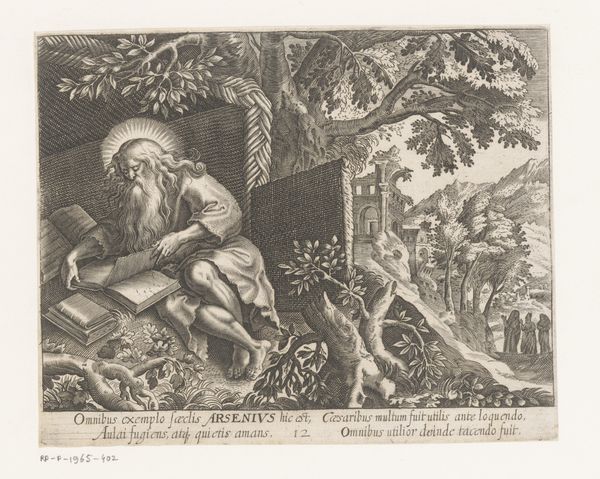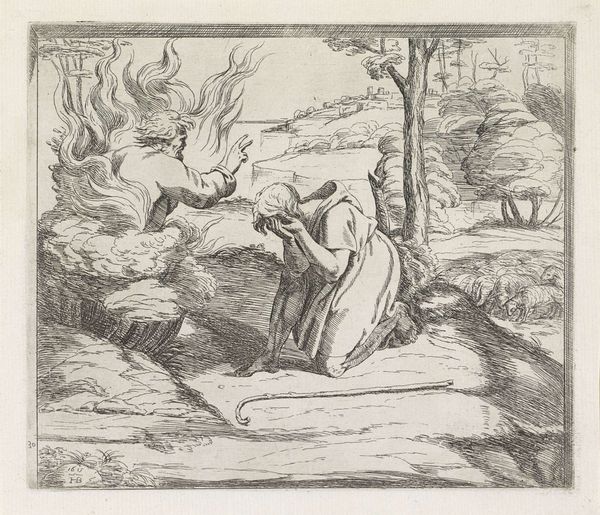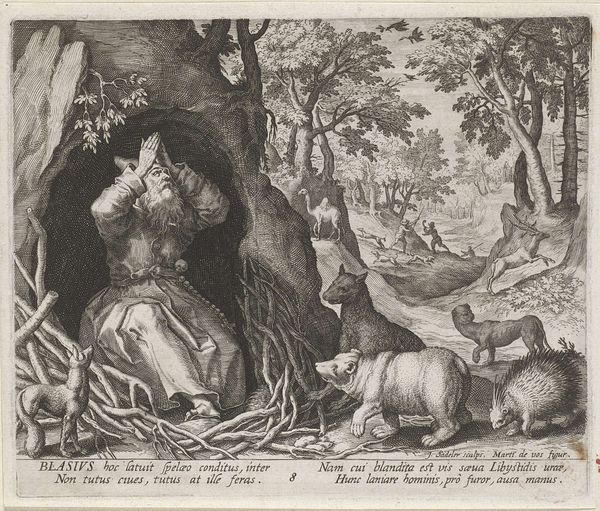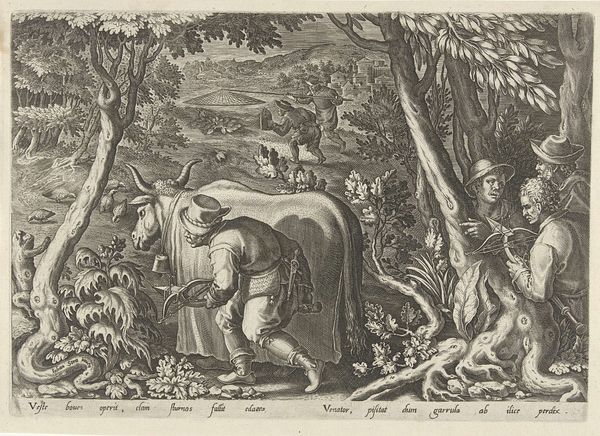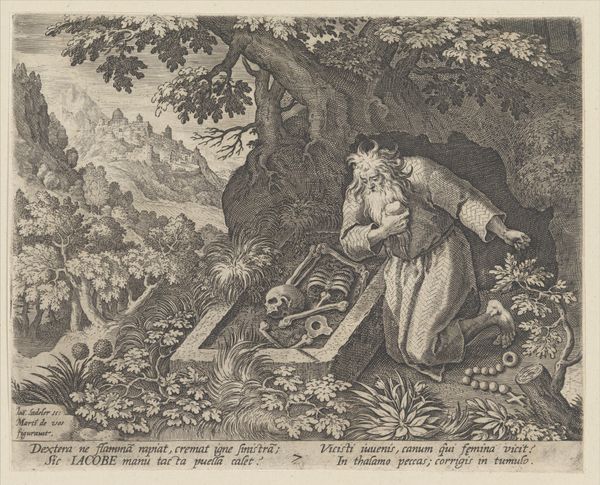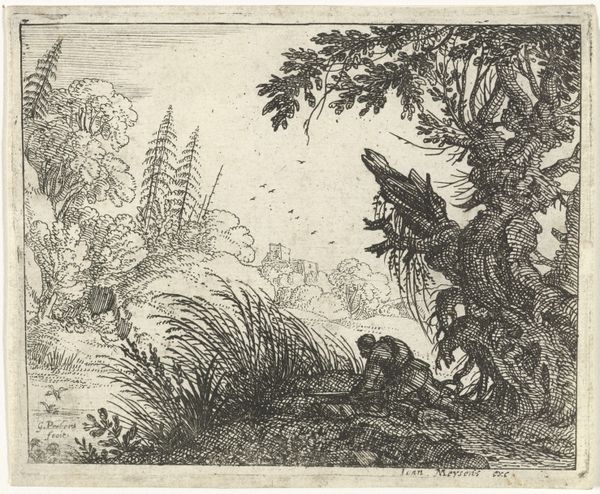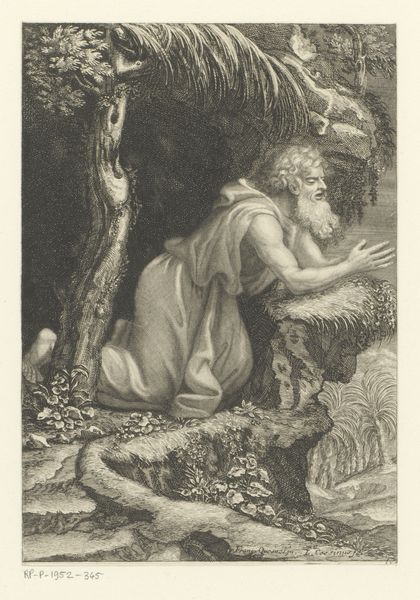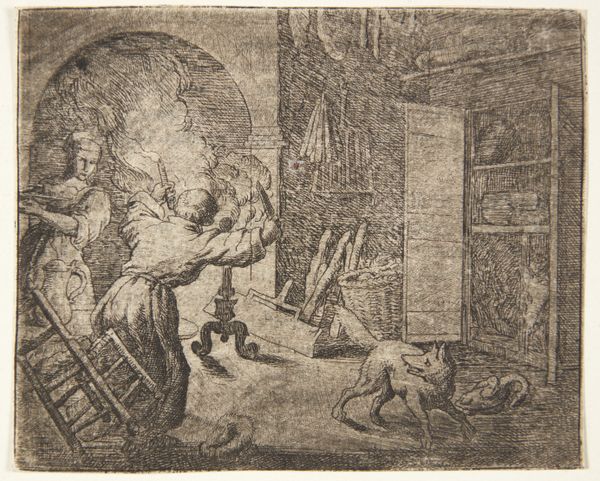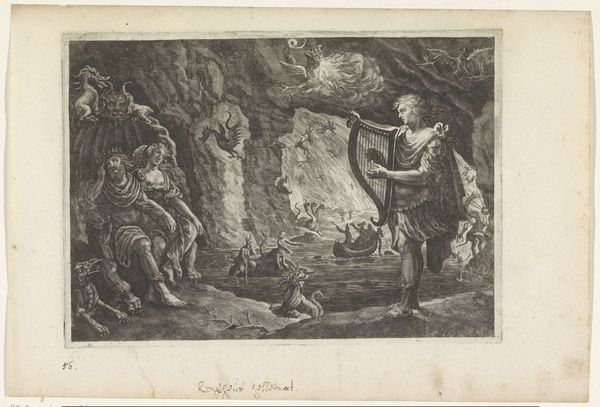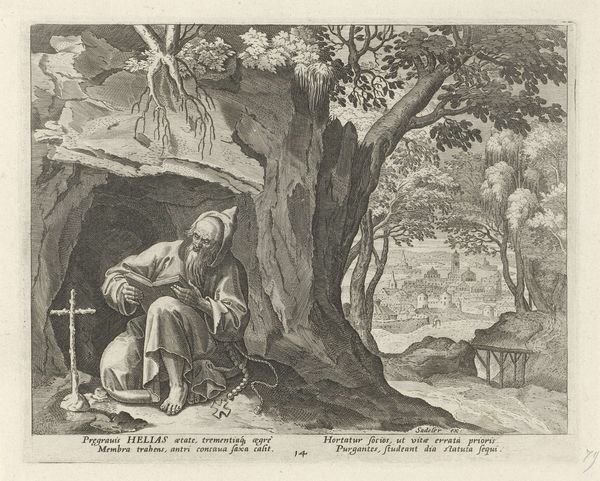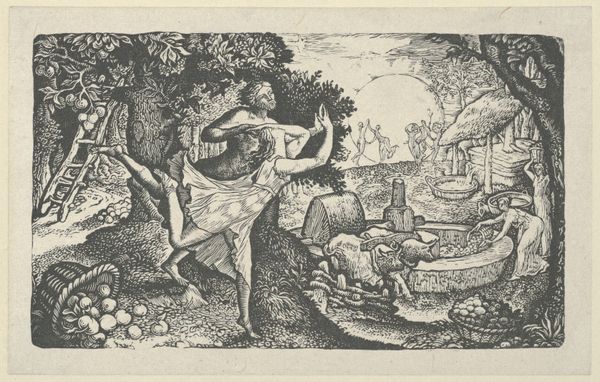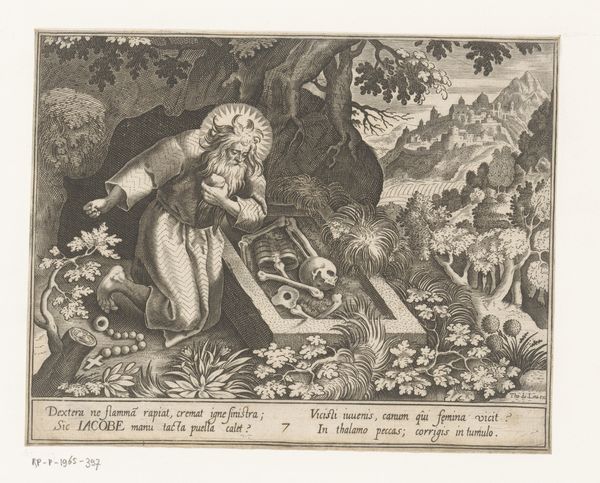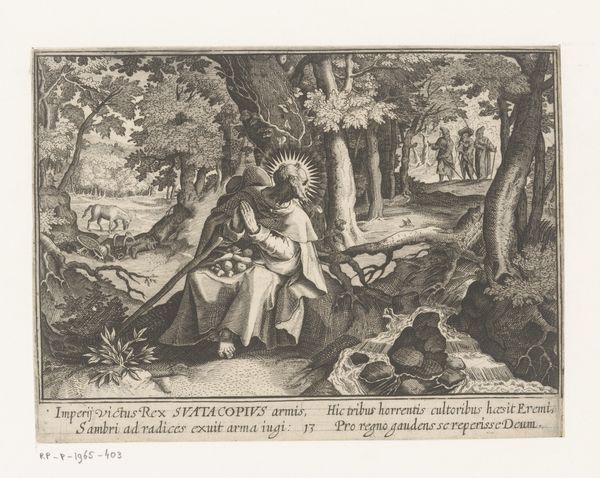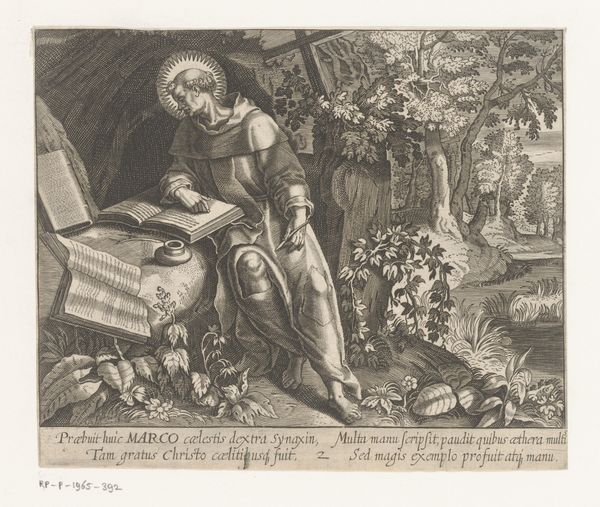
print, etching
#
baroque
#
pen drawing
# print
#
etching
#
figuration
#
line
#
history-painting
Dimensions: height 99 mm, width 145 mm
Copyright: Rijks Museum: Open Domain
François Seghers’ print depicts Saint Jerome in the wilderness. It was made using the etching process, a printmaking technique that democratized image production in its time. The process involves covering a metal plate with a waxy ground, then scratching an image into that surface. The plate is then bathed in acid, which bites into the exposed metal lines. Ink is then applied, filling these grooves, and the image is transferred to paper under pressure. The etched lines define the composition. Look how they capture the gnarled texture of the landscape, the fabric of Jerome's robes, and even the light streaming down upon him. This painstaking, repetitive labor allows for the reproduction of images at a far greater scale than painting or sculpture. While an etching like this could certainly be considered a work of art, it is important to remember the function of prints in disseminating information, devotion, and cultural values.
Comments
No comments
Be the first to comment and join the conversation on the ultimate creative platform.
